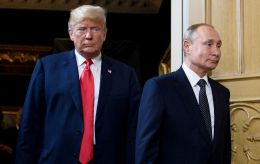Venezuela and Guyana: Key points of conflict and its potential impact on Ukraine
 Photo: Venezuelan forces on high alert following the annexation of Essequibo (Getty Images)
Photo: Venezuelan forces on high alert following the annexation of Essequibo (Getty Images)
The long-standing territorial dispute between Venezuela and Guyana may escalate into a military conflict. Following the results of a referendum, Venezuelan leader Nicolas Maduro announced the annexation of the oil-rich Essequibo region and mobilized the army. Guyana has also put its forces on heightened alert.
More details about the conflict between these countries and whether it could affect Ukraine can be found in the material below from RBC-Ukraine.
During the preparation of this article, publications from The Guardian, BBC, Reuters, Folha de Sao Paolo, Wikipedia, data from Global Firepower, Military Balance, and comments from the special representative of the Ministry of Foreign Affairs of Ukraine in Latin America, Ruslan Spirin, were used.
Chronicle of recent events
On December 6, 2023, Venezuelan President Nicolas Maduro effectively announced the annexation of the Essequibo region, a neighboring state of Guyana.
During a government meeting, he proposed submitting a bill to the National Assembly to create a new state called Guyana-Essequibo within the country. He also ordered the establishment of a temporary government there, the conduct of a population census, and the issuance of Venezuelan passports.
This was preceded by a referendum on December 3, where Venezuelan residents expressed support for the annexation of the new territory. However, the officially published result of 95% support raised doubts. According to media reports, voter turnout was low, and the voting data could have been falsified.
The referendum was conducted despite the decision of the UN International Court, which called on Venezuela to refrain from any actions in the territorial dispute with Guyana.
The conflict has been ongoing since the 19th century when Guyana was still part of the British Empire. The dispute intensified with the discovery of rich oil deposits in Essequibo in 2015, and today the countries are on the brink of war.
Motivations of Maduro
In 2024, Venezuela is set to hold another presidential election. Analysts consider Nicolas Maduro's policy regarding Essequibo as an element of his election campaign. The longstanding territorial dispute with the neighboring country is seen as the only tool that can unite Venezuelans in the midst of a deep state crisis.
"Undoubtedly, the decision of the referendum and the claim to supposedly regain the unlawfully lost territory can appeal to the national spirit and serve as an argument in the elections. We know that an appeal to nationalism can be an extremely decisive factor in elections," expressed the opinion of Lucas Carlos Lima, a professor of international relations at the Federal University of Minas Gerais in Brazil, in a comment to the BBC.
Additionally, the BBC suggests that Maduro may use the referendum results to initiate a military operation on the border with Guyana. If he realizes that the presidential campaign is failing, declaring a state of emergency in the country could prevent the elections from taking place.
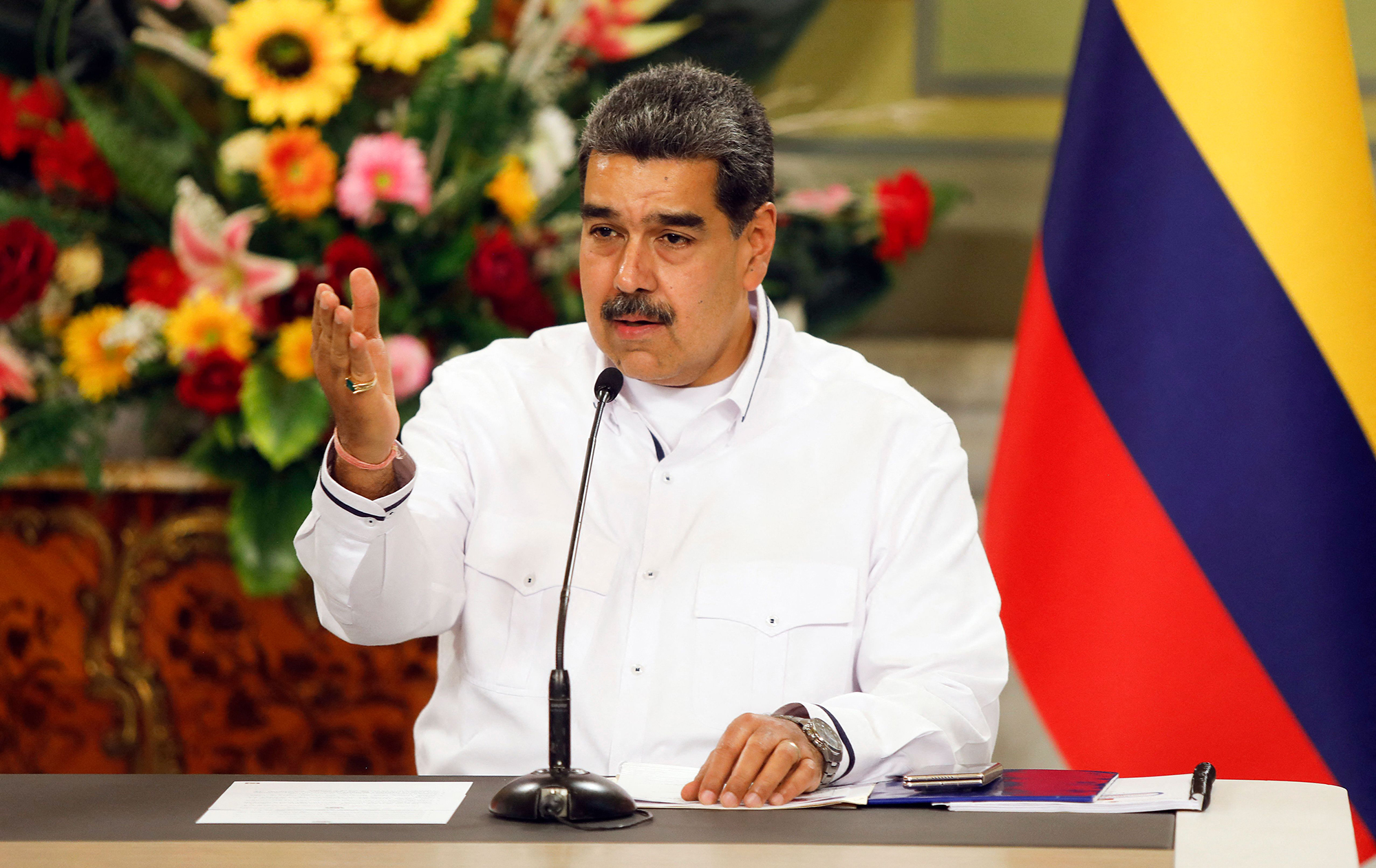
Venezuelan President Nicolas Maduro (Getty Images)
"Escalation" before the elections
Nicolas Maduro has been leading Venezuela for a decade. His re-election for a second term in 2018 plunged the country into a political crisis. Dozens of countries, including the United States, deemed the elections fraudulent.
Protests erupted in Venezuela, and the parliament officially removed Maduro from power, appointing Juan Guaido as the acting head of state. Since then, Maduro has controlled certain ministries and the national bank, while Guaido retained control over the country's parliament. However, Guaido's cabinet was dissolved in December 2022.
Ruslan Spirin, the special representative of the Ministry of Foreign Affairs of Ukraine in Latin America, expressed the opinion to RBK-Ukraine that President Maduro conducted the referendum to divert the attention of Venezuelans from internal problems.
Discontent with the government continues to grow in the country due to the socio-economic crisis. In the fall of 2023, the opposition held primaries for presidential candidates, garnering over 2.4 million votes. This signaled danger for Maduro on the eve of the presidential campaign.
It is important to note that the process of the upcoming elections in Venezuela will be monitored by international observers from the UN and the EU, which will help minimize the possibility of falsification.
Experts consider the referendum on Essequibo as a check on electoral support, which Maduro "failed." Although the Venezuelan leader claimed that the people had spoken "loudly and clearly" on the territorial dispute, voter turnout was low.
According to the National Electoral Commission, 10.5 million people out of 20 million eligible voters in Venezuela cast their votes. However, the actual figures could be lower. Observers from the media reported that there were no queues at polling stations, and representatives of The New York Times observed practically empty voting centers.
"This is a huge failure for the government," evaluated Benigno Alarcon, director of the research center at the Catholic University Andres Bello in Caracas, regarding voter turnout.
Position of Guyana and its allies
Guyana opposes Venezuela's territorial claims regarding the annexation of a part of the country. President Irfaan Ali stated that "Essequibo belongs to us, every square inch of it," and pledged to defend it.
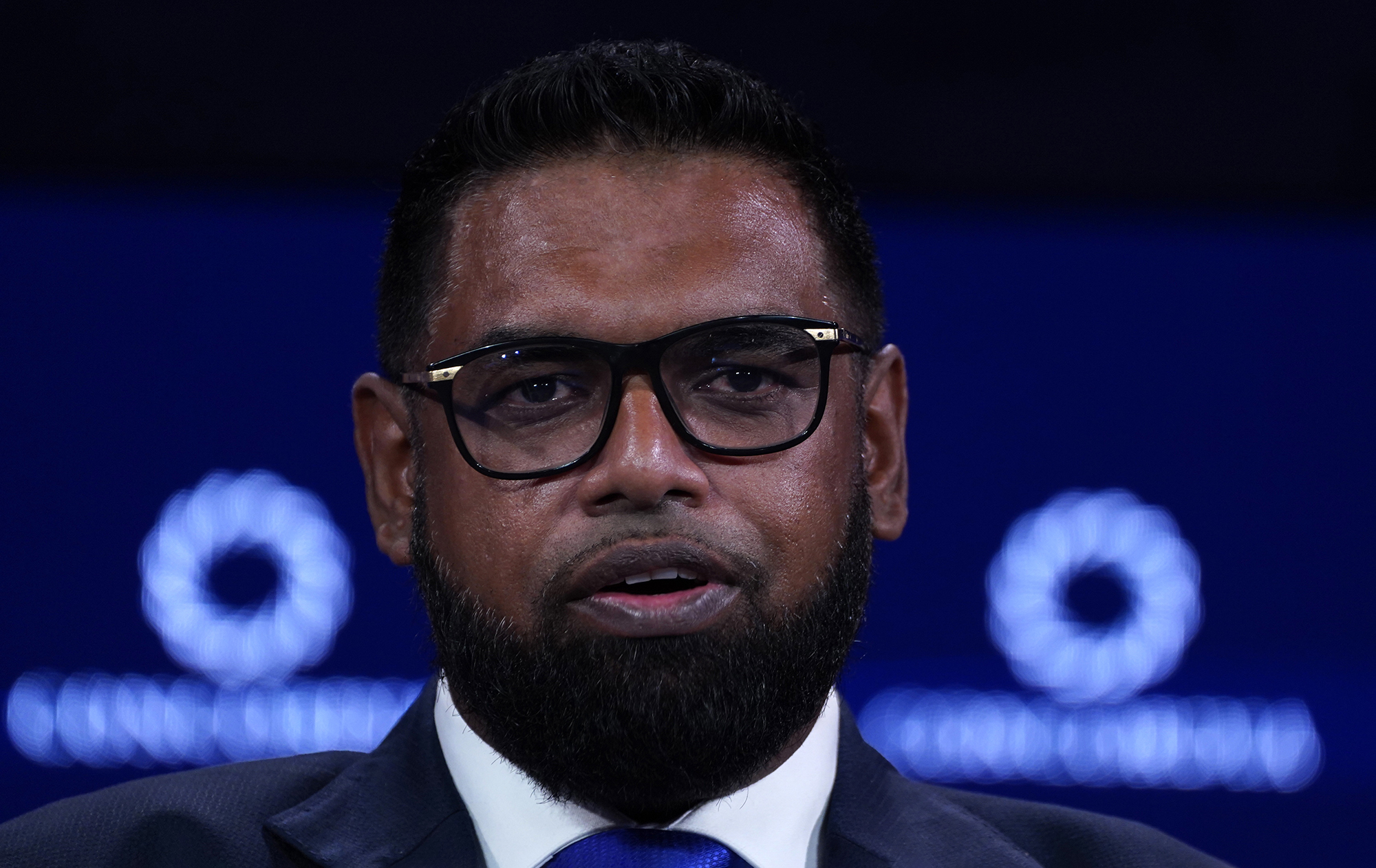
Photo: Guyana's President Irfaan Ali (Getty Images)
The first step was the appeal to the United Nations International Court, which is authorized to make decisions in disputes between Venezuela and Guyana.
On December 1, the court ordered Venezuela not to take any actions to change the status quo until a verdict is reached regarding the competing lawsuits of the two countries. By the way, Venezuelans were asked in the referendum whether they agreed not to recognize the jurisdiction of the International Court regarding the territorial dispute.
After Maduro's announcement of annexation, Guyana's President Irfaan Ali referred to Venezuela as a "state beyond the law."
"Challenging the International Court, Venezuela has rejected international law, the rule of law in general, as well as fundamental justice, morality, and the preservation of international peace and security. They have literally declared themselves a state outside the law," Ali stated in his speech.
The leader of Guyana sought assistance from the UN Security Council and reached out to the governments of the United States, the United Kingdom, France, and Brazil.
As explained by Guyana's Attorney General Anil Nandlall to France24, "any actions or attempts to take any action in accordance with the referendum require a referral to the UN Security Council as the aggrieved party."
He stated that Guyana would invoke Articles 41 and 42 of the UN Charter, which could sanction restrictions or military actions to support or restore international peace and security.
"As for military forces, the UN Security Council can authorize the use of armed forces by member states to assist in the enforcement of International Court orders," Nandlall said.
Meanwhile, the United States has called on Venezuela and Guyana to seek a peaceful resolution to the Essequibo region dispute.
"We urge Guyana and Venezuela to find peaceful means to resolve their territorial dispute, and this is not an issue that can be settled by a referendum," said Matthew Miller, a representative of the State Department, at a briefing.
On December 7, U.S. military personnel, together with the Guyana Defence Force, are scheduled to conduct joint exercises. The U.S. Embassy in Georgetown emphasized that Washington would continue to fulfill its commitments as a "reliable security partner to Guyana."
Countries are mobilizing military forces
After the referendum on December 3, both sides of the territorial dispute announced the mobilization of their armed forces as a "preventive measure."
Nicolas Maduro deployed military personnel to the country's border near the Atlantic coast. Venezuelan military officials also announced the construction of a runway, which would serve as a "logistical support point for the comprehensive development of Essequibo."
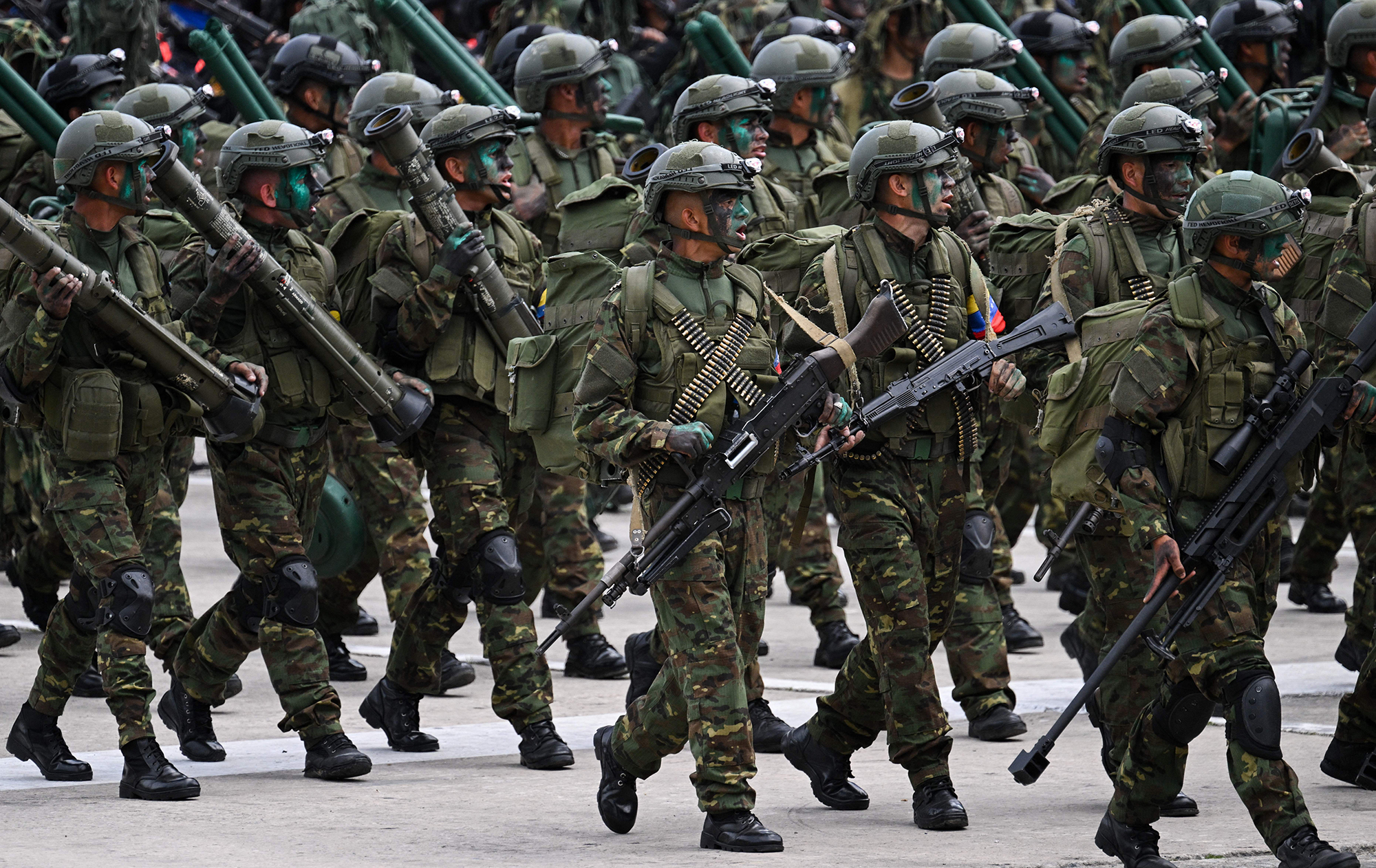
Photo: Venezuelan army deployed to the borders with Guyana (Getty Images)
Іrfaan Ali stated that Guyana considers this a direct threat to territorial integrity and is strengthening the defense of its lands.
"Guyana's defense forces are in full combat readiness and are in contact with their military colleagues, including the U.S. Southern Command," he emphasized.
However, Guyana's military strength significantly lags behind the numerical superiority of Venezuela's army. According to the Global Firepower portal, the Venezuelan armed forces rank 52nd out of 145 in the world and have 137.5 thousand military personnel and 229 tanks.
The Guyanese army is not included in this ranking. The Military Balance resource estimates the strength of the country's armed forces at 3,000 soldiers and only 6 tanks.
Why Essequibo became a conflict zone
The territorial dispute between Venezuela and Guyana has lasted for almost two centuries. In 1811, Venezuela gained independence from the Spanish Empire, and the Essequibo region became part of the new country.
However, three years later, the British Empire acquired the colony of Guiana (now Guyana) under a treaty with the Netherlands, next to Venezuela. The borders between the territories were not clearly defined in the treaty, leading to a dispute over the Essequibo region.
In 1841, Venezuela accused Britain of invading its lands, sparking the conflict. International arbitrations lasted for many years. In 1889, a decision by the Paris Arbitration Court recognized Essequibo as part of British territories. Guyana continues to be governed by this decision.
Venezuela claims that the Paris court was not impartial, and Essequibo was unlawfully seized by Britain in the 19th century.
In 1966, shortly before Guyana gained independence from the United Kingdom, Caracas and London signed the Geneva Agreement, which acknowledged Venezuela's claims and aimed to find practical solutions for the settlement of the dispute.
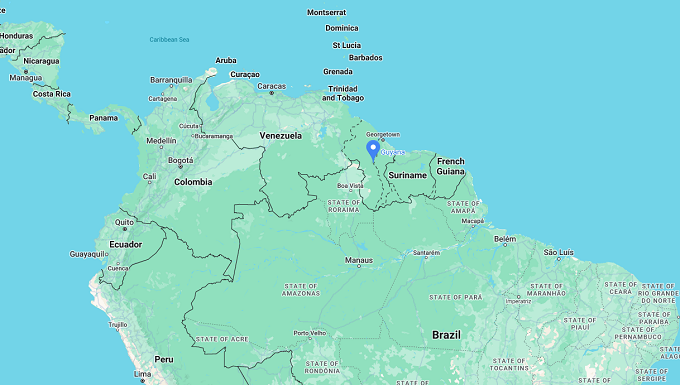
Border of the contested territory Essequibo (Google Maps screenshot)
While territorial claims were not resolved, they didn't lead to conflicts similar to the current one throughout the 20th century.
During the rule of Venezuelan President Hugo Chávez, Venezuela and Guyana had good relations. Guyana even joined the Petrocaribe alliance created by Chávez, receiving Venezuelan oil at a discounted rate.
The conflict over Essequibo escalated in 2015 when rich oil deposits were discovered in the region. The estimated reserves were 11 billion barrels of oil (0.6% of global reserves) worth over half a trillion dollars. The Economist then dubbed Guyana the "new oil state of the world."
Since then, the Venezuelan president periodically raised the issue of the longstanding territorial dispute, leading to the referendum.
After declaring the annexation of Essequibo, Nicolás Maduro ordered the issuance of licenses to Venezuelan state oil extraction companies to start operations in the annexed territory. Meanwhile, the transnational company Exxon Mobil, which operates in the Essequibo region, is instructed to cease activities within 3 months.
Who may support Venezuela
Brazil is a significant player in the dispute between Guyana and Venezuela as their neighboring country. After the Essequibo referendum, Brazilian President Luiz Inácio Lula da Silva decided to reinforce the military contingent on the border. The Brazilian Ministry of Defense deployed 200 Brazilian troops and wheeled armored vehicles to the city of Pacaraima on the border with Guyana, as reported by the Brazilian publication Folha de Sao Paulo.
At the same time, the Brazilian leader hopes for a peaceful resolution and emphasizes that "South America does not need chaos."
"Work with great persistence to improve people's lives, and don't think about war. Don't continue making up stories. So I hope that common sense will prevail—on the side of Venezuela and on the side of Guyana," urged Lula da Silva to the leaders of both countries.
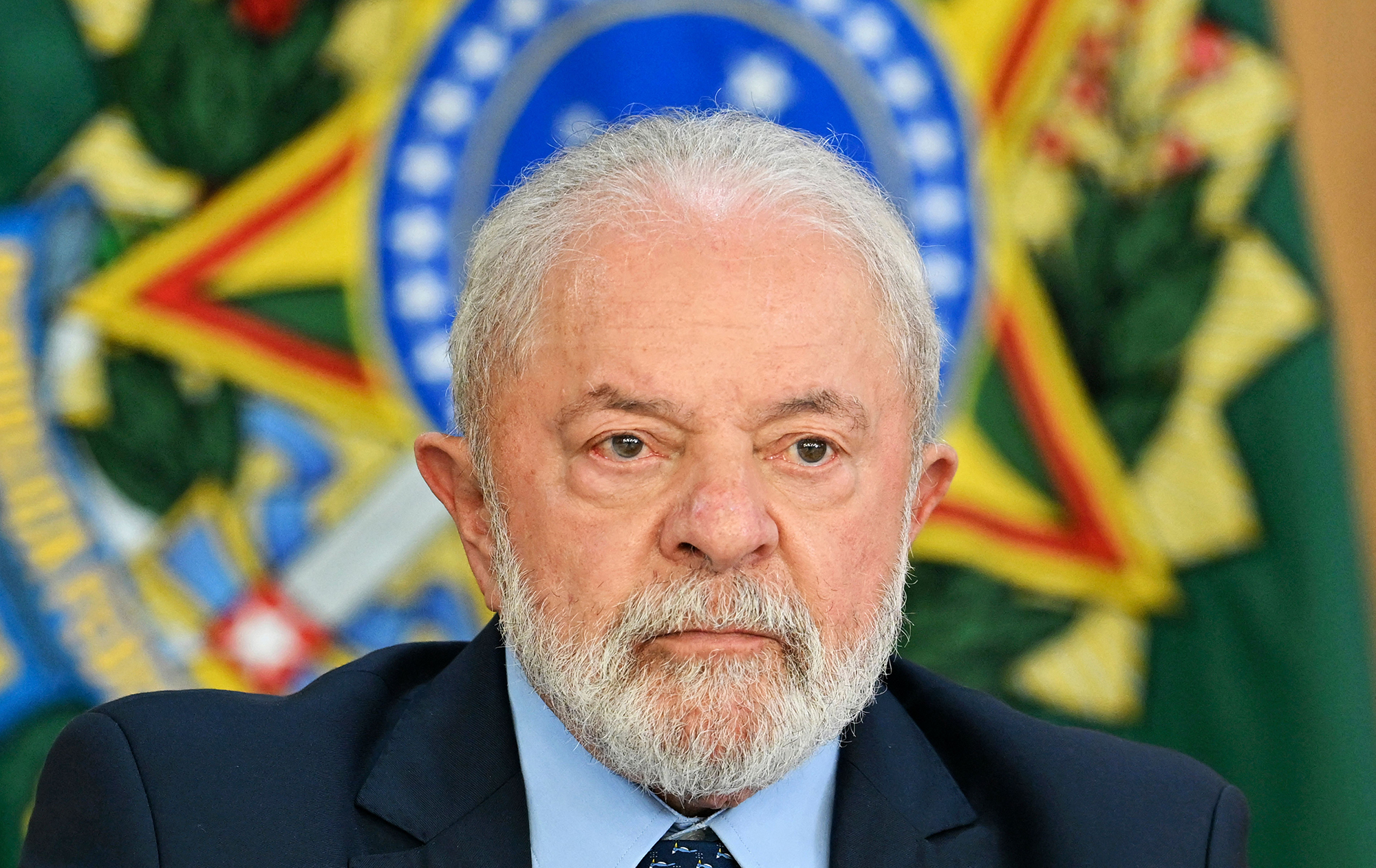
Photo: Brazilian President Luiz Inácio Lula da Silva (Getty Images)
As commented by Ruslan Spirin, Ukraine's special representative in Latin America, there is currently no information that anyone in Latin America supports Venezuela's actions aimed at escalating the conflict.
As a rule, almost all countries in Latin America are peaceful nations, members of the UN, and adhere to the principles of international law. Those who violate the basic principles of the UN do not receive support from Latin American countries, according to the diplomat.
However, Venezuela might find an ally on another continent – Russia, a supporter of Nicolas Maduro. Russian media present the conflict as an obvious indication that war is imminent and subtly hint at Maduro's military advantage.
"Russia undoubtedly supports Venezuela. Now we see that after the referendum, Maduro declares his intention to go to Russia for negotiations by the end of this year. Is this a coincidence, or is there coordination?" speculated Ruslan Spirin.
How the conflict may affect Ukraine
It's worth noting that in March 2022, Nicolas Maduro expressed support for Russia's full-scale invasion of Ukraine. At that time, the Venezuelan leader stated that the so-called LPR and DPR were created to protect the people of Donbas from Ukrainian radicals.
If an armed conflict arises between Venezuela and Guyana, it could divert the attention of the international community from ongoing conflicts, including the aggression against Ukraine. Clearly, this would be advantageous for Russia.
"The countries of Latin America are great pacifists who adhere to the principles of non-interference in the internal affairs of other countries. At the same time, they strongly condemn Russia's aggression against Ukraine," expressed the diplomat.
Countries in the region will try to prevent escalation and resolve the situation with the involvement of UN capabilities. However, considering Russia's unchallenged aggression against Ukraine, it encourages the resolution of disputes through force. Currently, it is critically important for the region to demonstrate leadership and prevent the disagreement from turning into a conflict, concluded Ruslan Spirin.
At the same time, Ukraine claims there is an emphasis on the need to adhere to the legally binding decisions of the International Court of Justice in the "Guyana v. Venezuela" case. The order requires Venezuela to refrain from any actions that would change the situation in the Essequibo region. Both parties are also urged to refrain from any actions that could exacerbate or extend the dispute or complicate its resolution.

